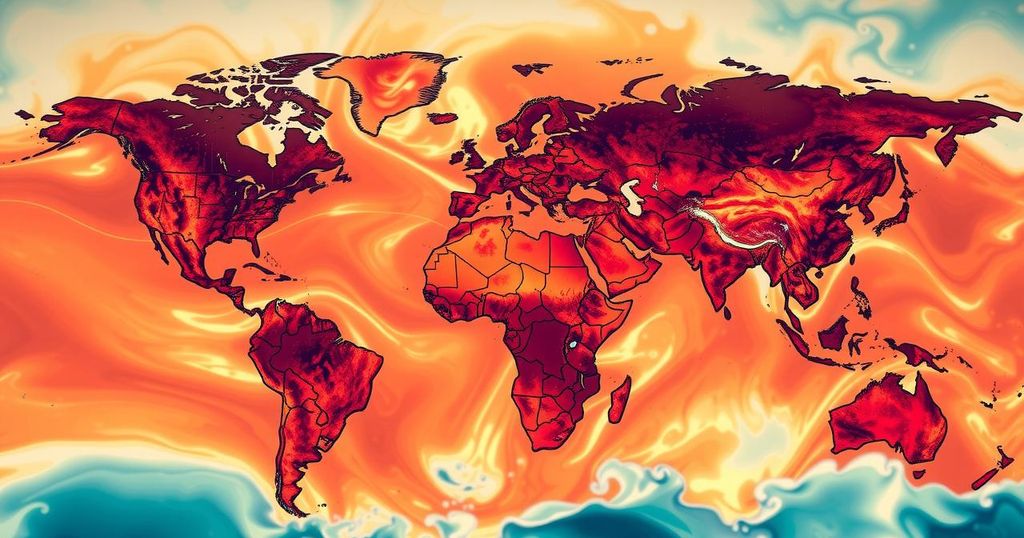The year 2024 is officially the warmest on record, with global temperatures surpassing the critical 1.5 degrees Celsius threshold, according to Copernicus. This situation calls for urgent global actions on climate change, as extreme weather events have become more prevalent, affecting millions worldwide. Experts cite human-induced climate change as a significant factor for these alarming trends.
The year 2024 has been officially declared the warmest year globally since the commencement of record-keeping in 1850, according to the Copernicus Climate Change Service (C3S). This alarming finding emphasizes the urgent need for robust international action to combat climate change. Notably, 2024 is the first year where the global average temperature has surpassed 1.5 degrees Celsius above pre-industrial levels, a benchmark established by the Paris Agreement.
The global average temperature in 2024 reached 15.1 degrees Celsius, exceeding 2023’s record by 0.12 degrees Celsius. This translates to an increase of 1.6 degrees Celsius when compared to pre-industrial temperature estimates. Furthermore, the average temperature across 2023 and 2024 collectively surpassed the critical 1.5 degrees Celsius threshold.
The Paris Agreement aims to restrict global temperature rise to well below two degrees Celsius, with a goal of capping it at 1.5 degrees Celsius by 2100. Although this data does not indicate a breach of the Agreement’s limit—since it encompasses temperature anomalies averaged over two decades—it illustrates a concerning trend where temperatures are escalating beyond the historical norms experienced by humanity.
In 2024, the atmospheric water vapor reached unprecedented levels, exceeding the 1991-2020 average by approximately 5 percent. These high temperatures, along with elevated water vapor levels, led to significant heatwaves and severe rainfall, resulting in distress for countless individuals. Dr. Samantha Burgess, strategic lead for climate at the European Center for Medium-Range Weather Forecasts, highlighted the disastrous global implications.
Dr. Julien Nicolas of C3S attributed the record-high temperatures predominantly to human-induced climate change, while also acknowledging the influence of the natural climate phenomenon known as El Niño. Recognizing the gravity of the situation, C3S Director Carlo Buontempo stated that decisive and prompt actions could potentially redirect the future trajectory of the climate.
The Copernicus Climate Change Service (C3S) is an initiative of the European Union that closely monitors and analyzes climate data to inform policy-making and public understanding of climate dynamics. Global temperatures have been rising steadily, with the increase attributed mainly to human activities such as fossil fuel combustion and deforestation. The Paris Agreement is an international treaty that seeks to combat climate change and outlines strategies for nations to voluntarily reduce their greenhouse gas emissions in order to limit global warming to specified thresholds.
In summary, 2024 has been verified as the warmest year on record, highlighting an urgent need for immediate action against climate change. With global temperatures now consistently exceeding critical thresholds, it is essential for global leaders and stakeholders to implement effective strategies to mitigate the impact of climate change. Failure to act could result in continuing adverse environmental and societal consequences.
Original Source: www.socialnews.xyz






